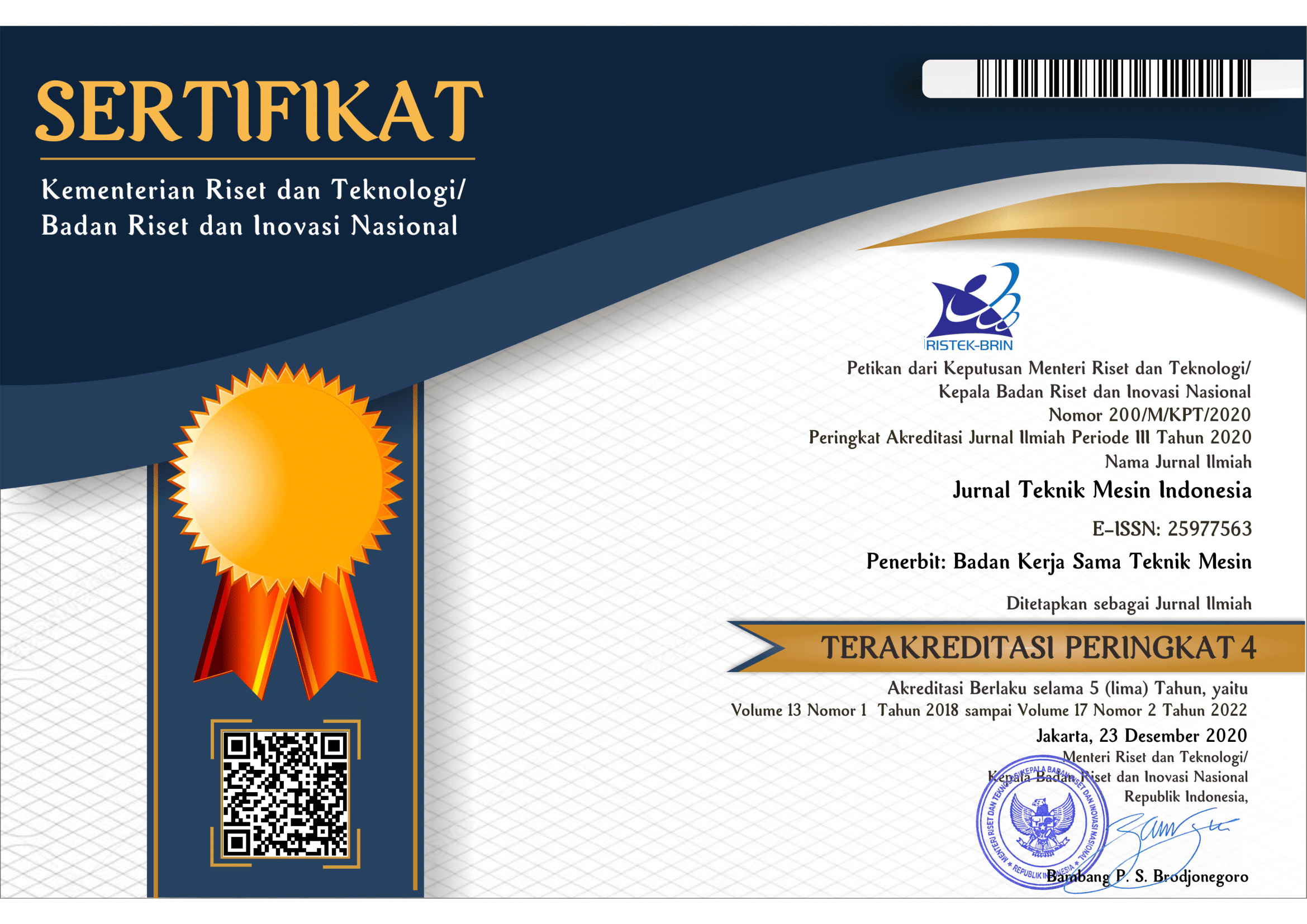Perhitungan Teoritis Kinerja Mesin GLP III Sport Dibandingkan dengan Hasil Dynotest
DOI:
https://doi.org/10.36289/jtmi.v20i1.731Keywords:
Torque, Power, Motor Performance, ModificationAbstract
In reciprocating internal combustion engines, the air-fuel mixture significantly influences the thermodynamic changes in the engine and the performance of its components. This study aims to compare the performance of standard and modified engines using Pertalite fuel. The experimental results are also compared with theoretical calculations to evaluate the impact of the modifications on engine performance. The method used in this research is experimental, conducted on both standard and modified Honda GLP III Sport engines. Measurements were performed using a dynotest and unloaded stop tests to obtain data on power, torque, engine speed (rpm), and specific fuel consumption (SFC). The results show that the modified engine exhibits significant increases in power and torque, along with a reduction in SFC compared to the standard engine. At an engine speed of 5000 rpm, the power output of the standard engine is 4.35 kW, while the modified engine reaches 9.11 kW, representing a 109.42% increase. The torque produced by the standard engine is 8.32 N.m, whereas the modified engine achieves 17.4 N.m, indicating an increase of 109.13%. The specific fuel consumption of the standard engine is 482.896 g/kW.h, whereas the modified engine has a specific fuel consumption of 323.38 g/kW.h, showing a decrease of 33.03%. In conclusion, the modifications made to the Honda GLP III Sport engine positively impact its performance, with significantly higher power and torque and improved fuel efficiency. These modifications are proven to enhance engine performance based on both experimental and theoretical results.










